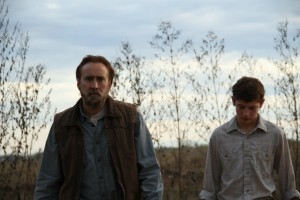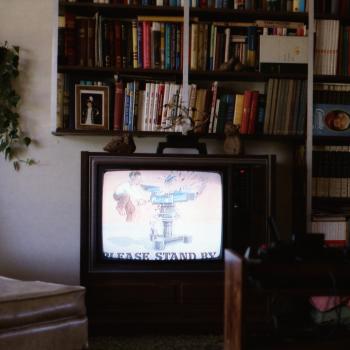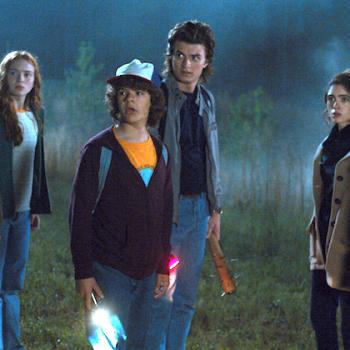H ow many of our triumphs in a long and confusing life are accountable not to the things that we do, but to the things that we ultimately cannot do? How much larger is a soul for the many unmarked feats, the unnoticed evidence of furious battles fought against the self, just to hold back, to tamp down, to remain and endure when all would warrant otherwise?
ow many of our triumphs in a long and confusing life are accountable not to the things that we do, but to the things that we ultimately cannot do? How much larger is a soul for the many unmarked feats, the unnoticed evidence of furious battles fought against the self, just to hold back, to tamp down, to remain and endure when all would warrant otherwise?
Medals, trophies are given for action, not inaction. But it seems a terrible injustice to call the agonies suffered in attempts to retain basic decency “inaction.” The malgre lui who ultimately cannot do what everything inside him says that he should is a quiet, but nonetheless valiant, warrior. They also serve who only withstand and remain.
Such inner turmoil is at the center of David Gordon Green’s latest film, Joe. Among the many fine directors today, Green has consistently impressed with his signature vision, featuring intense sojourners in fraught landscapes. His premiere effort, George Washington—about the burdened lives of children who cover up a crime—was widely appreciated, as were his subsequent movies, All the Real Girls, a love story set in a small Southern town, and Undertow, about a young boy chased by a murderous uncle. Green wrote all of these efforts, but his current offering is based on a novel by the late Mississippi writer, Larry Brown.
In the film, Nicholas Cage has one of his best outings as a man with a past suggested to have been so violent that he’s always one burnt cigarette away from exploding into a rampage. He has to manage himself carefully, isolate himself thoughtfully, from interacting too deeply with others.
Of course, life won’t cooperate. Joe is hounded by a weasely pervert (wonderfully played by Ronnie Gene Blevins), menaced by an overanxious policeman, and even harassed by a hooker’s throat-lunging dog. On top of that, he’s the kind of man who both knows a lot and can do a lot, so people, even good people, pull at him from all directions.
Sometimes he snaps, wildly, and so he must stay hemmed in and barb-wired off—even calling the law on himself when he senses a point of no return. If he averts his eyes from the many awful things in the bloody, filthy place that he inhabits, one that is at turns rain-soaked and sun-parched, he feels it’s for the best of all—himself and those whom he might “touch,” if his temper is riled. He’s a man of extremes in a place of extremes, as dangerous as a match atop a gas can.
The fragile compromise he’s made with life has him contracting for a group of developers, hiring gangs of men to poison trees for their eventual clearing. The workers come and go—some steady, some drunk and lawless—and the labor is as hard and unforgiving as the weather. The whole town is populated with the chronically wretched—the kind of people who escape the quixotic plans of utopians, who live rough in a relentless destiny, who always have just enough money for cigarettes, liquor, drugs, and candy.
Throughout, Joe’s intensity wears on him like a blister that won’t heal, as it is never given that chance; drinking too much and brooding too long, he senses it’s only a matter of time before things blow up. The virtue in the story lies in his choice—in the direction in which his personal conflagration is spent.
When a hard-working, eager-faced, fifteen-year-old boy wanders into the woods one day (played by Tye Sheridan, in another standout performance), Joe gives him a job. The boy’s backstory is tragic, but he’s uncowed and able, with the inexplicable hopefulness of youth. Perhaps that’s why Joe grows attached to him, despite his misgivings; those who are old, who have seen what life will do to a heart, somehow cannot resist the charms of the young, and the belief that if adolescent energy and faith are encouraged, maybe this time it will be different; maybe this child will make it further, have more—reap a greater share of joy than grief.
So after getting a good day of hard labor from the boy, Joe invites him to come back the next day. Only this time, the boy wants to bring his father.
What follows is a tour de force—both artistically and cosmically. Because the man who plays the boy’s drifter, alcoholic father—Gary Poulter—was himself a drifter and alcoholic that Green cast straight off the streets of Austin, Texas. Looking twenty years older than he really was, Poulter incarnates the role of a man who abuses both himself and others beyond all endurable limits, but who is also capable of a shocking tenderness. Even as he performs an unspeakable act in one moment, in the next his face changes with a self-recognition long past tears, like the surface of dark water when the moon drifts between clouds.
In this derelict of a man, Joe stares at the ruin of what he could become; but in the promise of this man’s son, he stares at the hope of what he could have been, and at what he intends will have a chance to be—if the poisoned and the dying will give it room to grow.
Just prior to the film’s release, Poulter was found dead in the shallows of a lake—at a depth not deep enough to drown in, but too deep for a broken man to stand up against. It was a hard finish for a hard life.
But then, something always gets us in the end; it is whether we succumb to a cancer that would kill us on its own relentless, merciless terms, or whether we can cast it off—regardless of how fused it is with our being—and can die on terms of our own, that makes for the battle each must face, ultimately, definitively, in spite of ourselves.
A.G. Harmon teaches Shakespeare, Law and Literature, Jurisprudence, and Writing at The Catholic University of America in Washington, D.C. His novel, A House All Stilled, won the 2001 Peter Taylor Prize for the Novel.











